Your baby is interested in you and everyone else!
They are wanting to interact with other people and are learning more about themselves as well the skills needed to interact with others and regulate their emotions are called social skills.
In this post I will give you information about what social skills look like and how to encourage social skills in babies from 6 to 9 months.
All children develop differently so know that if your baby is not doing the exact same things as your best friend’s, that is ok.
However, if you are concerned about your little one’s development always seek out the Early Intervention program in your area for a free screening or evaluation.
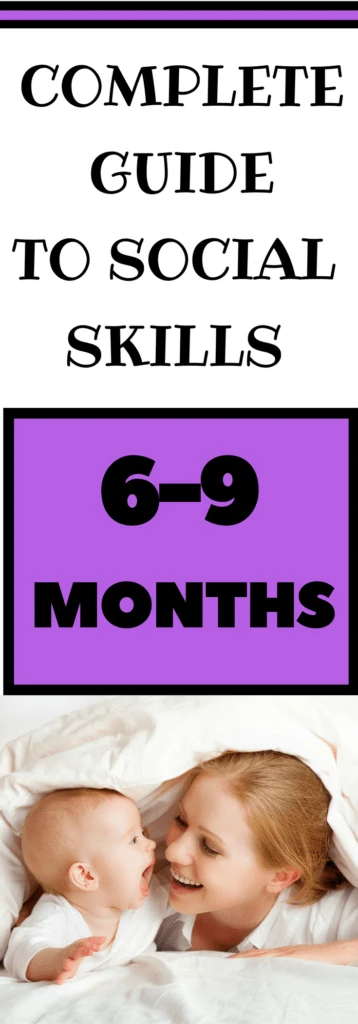
(This post may contain affiliate links. To read our full disclosure policy click here.)
6-9 MONTHS Social SKILLS INCLUDE:
Mirror Play
Your baby is becoming more aware of themselves and their reaction to mirrors is one way to see that.
Your baby will start smiling at themselves in the mirror. If you have an unbreakable mirror (like this) they may interact with it by patting and touching their reflection playfully.
Separation Anxiety Stages in Babies
Is your baby starting to notice when you are there and when you are not?
Separation anxiety typically develops in babies from 6-9 months.
They may show signs of this by crying when you leave the room even if only for a second.
If your child goes to child care, drop offs may be a bit more difficult as they become aware that you will be leaving them. Stranger anxiety can also be displayed during this time.
Separation anxiety will come and go throughout the baby and toddler years.
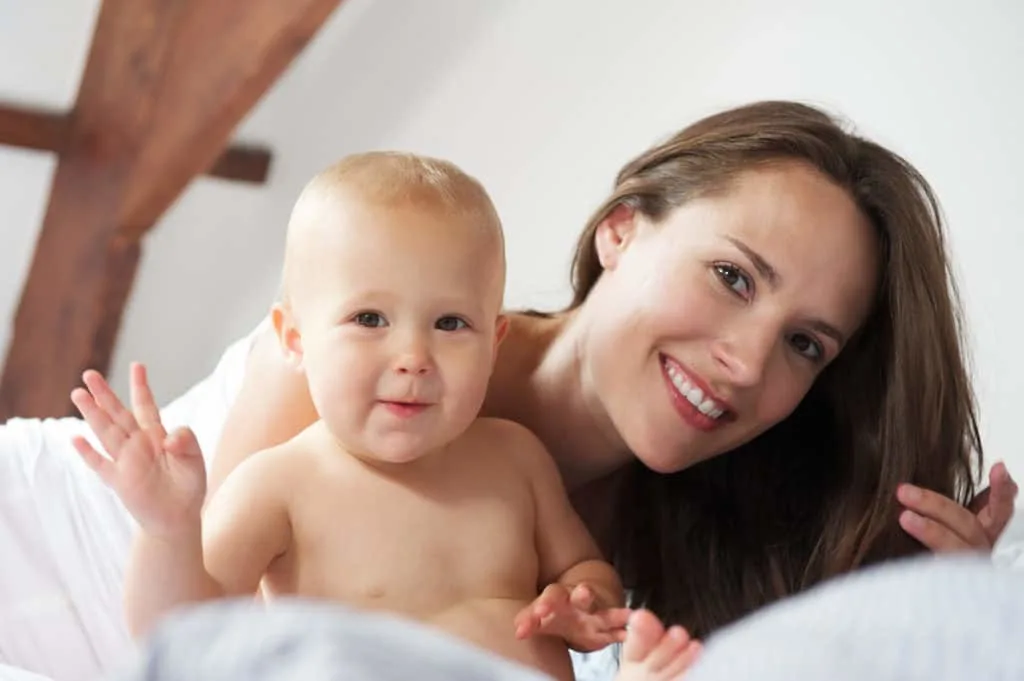
Baby Waving “hi” and “bye”
Your baby wants to be with you and they may be showing you that by lifting their arms out to you.
This simple gesture lets you know that they want you and is an easy way for them to communicate that.
Your baby will also start waving “hi” and “bye” as well when coming and going.
Related Post: Infant Development 6-9 Months: Motor Skills
HOW you can ENCOURAGE social SKILLS
Mirror Play
Mirrors are a great way for your baby to become more self aware.
When you are in the bathroom hold your baby up to the mirror so that they can see themselves and talk about what they look like.
Show them where there eyes, nose, and other body parts are.
If you are playing on the floor keep an unbreakable mirror (like this) out so that they can explore on their own.
You can also model for them how to make silly faces for them and label their expressions. Take your baby’s hand and gently show them how to pat and touch their reflection.
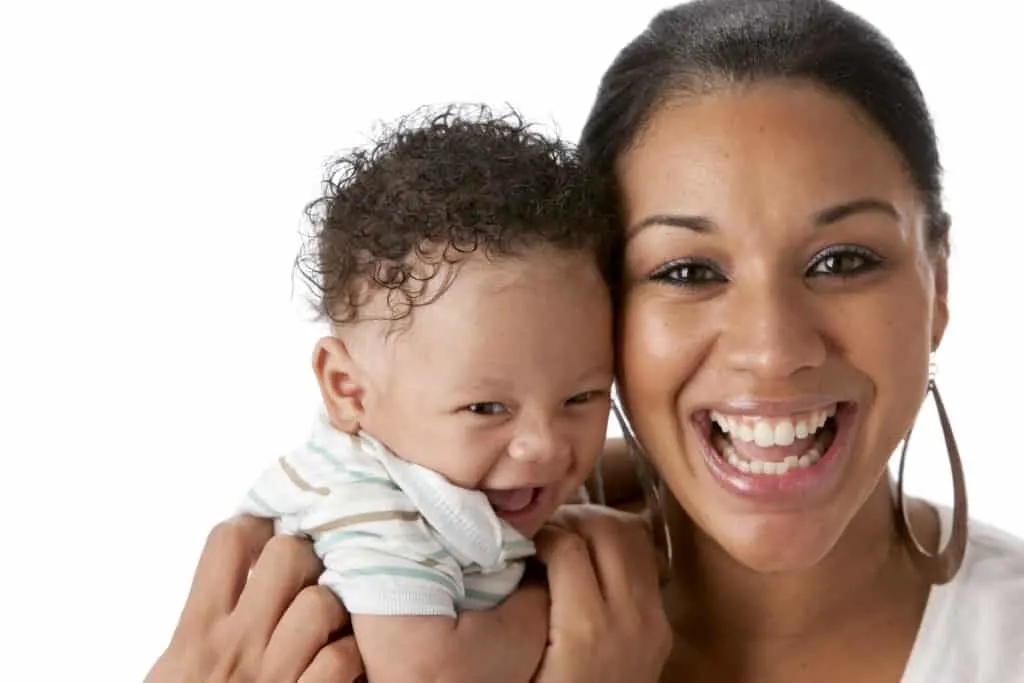
Communicate With Them
How do people interact with each other in the daily world? By talking! You can do the same with your little one to help grow social skills.
Tell them about what you are doing.
If you are going to be changing their diaper, tell them.
While making dinner let them know what you are doing by narrating your tasks.
If your baby is babbling and jabbering at you respond to them.
This way they know that they are being heard. You can give them words that you fit the situation in order to model vocabulary.
Label your baby’s emotions when they are having different feelings and label your own too.
RELATED POST: INFANT DEVELOPMENT 6-9 MONTHS: COGNITIVE SKILLS
Social Play
Your baby LOVES to be social with you and the people around them.
While changing their diaper make silly faces or sing to them.
If you are sitting on the couch with your baby let them explore your face and hair by gently touching you.
Wiggle your nose or stick out your tongue and watch their response. Do you they try to imitate you?
Label your body parts and then theirs so that they can become more self aware and learn the vocabulary (a great way to encourage cognitive skills as well.)
Sing simple songs and finger plays with your baby to encourage imitation skills.
Show them how to wave “hi” and “bye” when you are coming and going.
Imitating gestures is one of the first steps your makes in their language learning journey.
Want to learn more about your 6-9 month old baby?
Click on the links below to learn all about 6-9 month old child development
Physical Development 6-9 Months
Communication Development 6-9 Months
Intellectual Development 6-9 Months
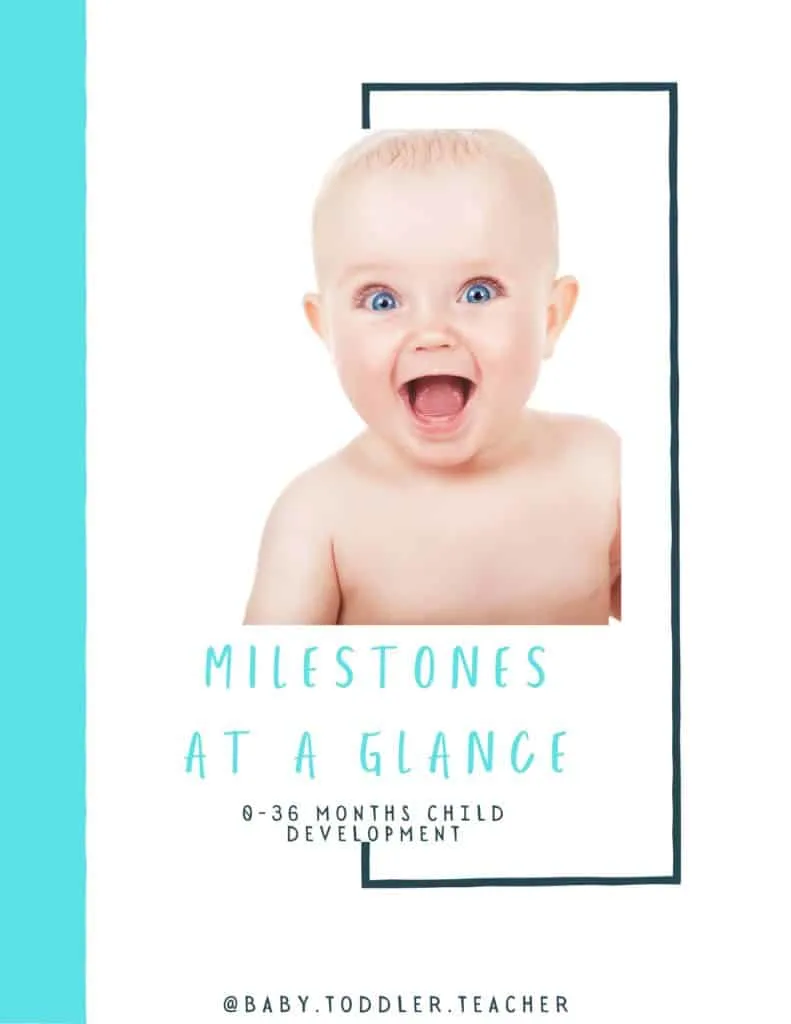
Grab your FREE Milestone Guide HERE.
Related Posts You Will Enjoy:
Baby Standing Milestones: Everything You Need to Know
One Minute Milestones: How to Encourage Development in Daily Routines
Top Toys For Baby’s First Year
5 Fun Bath Toys to Encourage Development
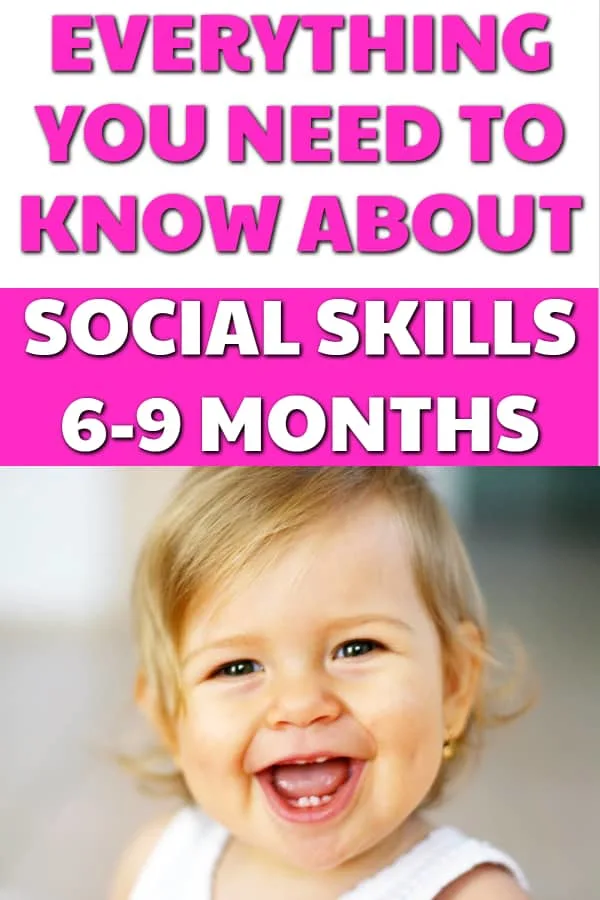

Kayla O’Neill has a master’s degree in education as well as a bachelor’s degree in special education with an emphasis in early childhood education. She has been working as a developmental therapist with babies and toddlers in early intervention since 2012. She is also a mom with two young children.